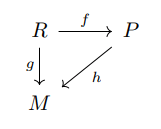“Homomorphically encrypted consciousness and its implications” by jessicata
Description
I present a step-by-step argument in philosophy of mind. The main conclusion is that it is probably possible for conscious homomorphically encrypted digital minds to exist. This has surprising implications: it demonstrates a case where "mind exceeds physics" (epistemically), which implies the disjunction "mind exceeds reality" or "reality exceeds physics". The main new parts of the discussion consist of (a) an argument that, if digital computers are conscious, so are homomorphically encrypted versions of them (steps 7-9); (b) speculation on the ontological consequences of homomorphically encrypted consciousness, in the form of a trilemma (steps 10-11).
Step 1. Physics
Let P be the set of possible physics states of the universe, according to "the true physics". I am assuming that the intellectual project of physics has an idealized completion, which discovers a theory integrating all potentially accessible physical information. The theory will tend to be microscopic (although not necessarily strictly) [...]
---
Outline:
(00:51 ) Step 1. Physics
(01:37 ) Step 2. Mind
(02:35 ) Step 3. Reality
(04:18 ) Step 4. Natural supervenience
(05:54 ) Step 5. Digital consciousness
(07:18 ) Step 6. Real-physics fully homomorphic encryption is possible
(08:47 ) Step 7. Homomorphically encrypted consciousness is possible
(10:46 ) Step 8. Moving the key further away doesnt change things
(12:02 ) Step 9. Deleting a far-away key doesnt change things
(13:34 ) Step 10. Physics does not efficiently determine encrypted mind
(16:06 ) Step 11. A fork in the road
(22:04 ) Conclusion
---
First published:
October 22nd, 2025
---
Narrated by TYPE III AUDIO.
---
Images from the article:

Apple Podcasts and Spotify do not show images in the episode description. Try Pocket Casts, or another podcast app.





